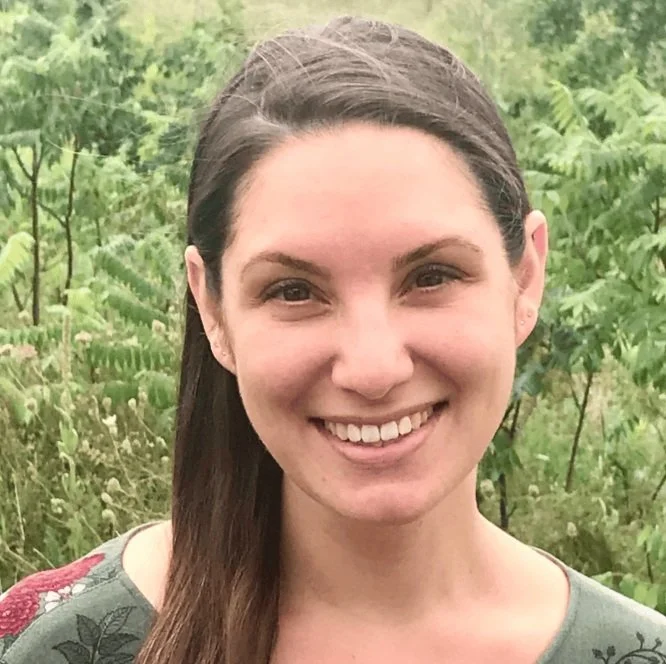
Expert Trauma Therapists Ottawa, Ontario
We help trauma survivors in Ottawa overcome their silent suffering so that they can reclaim their sense of self and inner peace. Post-traumatic stress disorder or PTSD is a treatable condition!
Compassionate, Trauma-Informed Therapists Are Ready When You Are
Living with trauma is incredibly challenging. The feelings you have are real and can be incredibly overwhelming. They can make you feel misunderstood and alone. This deep hurt affects every part of your life, disrupting your sleep, making it hard to connect with loved ones, and stealing the joy from your daily activities. Flashbacks, anxiety, and nightmares may seem relentless, leaving you feeling trapped and hopeless. I want you to know that there is hope.
In our sessions, we will create a safe space where you can express your feelings without judgment. We will work together to understand your trauma, acknowledging your experiences and validating your emotions.
Next, we will focus on practical tools to manage your symptoms, making daily life more bearable. Finally, we will set new goals and build healthy relationships, guiding you toward a fulfilling future. You deserve a life filled with joy and peace. As trauma therapists serving Ottawa, we are here to help you find it.
Meet the Clinical Directors of Virtual CBT Psychotherapy!
Celissa and Melissa are trauma therapists dedicated to helping people heal. With a compassionate, evidence-based approach, they create a safe and supportive space for healing.
Celissa or Melissa will meet with you for your free consultation. They will match you with a therapist in Ontario.
Featured on the OV Boss Babes Podcast (August 1, 2024), they share insights about their journey, their work in trauma therapy, and the power of accessible mental health care in Ontario.
Meet our therapists located in Ottawa!
How To Get Started with Trauma Therapy
-

Book a Free Consultation
Book a free consultation with us on our website by clicking the tab below. If the times don't work for you, send us an email at virtualcbt@gmail.com.
You will get an invite from Jane with an intake form. This form will help us better understand you. Most people are nervous to book but we are here to help!
-

Pick a Trauma Therapist
Meet with Celissa or Melissa for your free consultation. They will answer your questions you have about trauma therapy.
Then, they will discuss trauma therapist options based on your symptoms and preferences. Many people book their first therapy session during this call.
-

Trauma Therapy Begins
You will meet with your trauma therapist online. They will ask questions and get to know you during your first counselling session.
Together, you will create a personalized therapy plan. Most people feel better in 6-12 online therapy sessions.

Meet our Trauma Therapists Serving Ottawa
-

Celissa Vipond
RSW Psychotherapist
-

Melissa Lindstrom
RSW Psychotherapist
-

Alpar Szotyori
Psychotherapist
-

Lauren Steinhart
Clinical Psychologist
-

Jessie Daniel
RSW Psychotherapist
-

Catherine Sullivan
RSW Psychotherapist
-

Angela Hammond
RSW Psychotherapist
-

Jennifer O'Connor
Jennifer O’Connor
Psychotherapist
The American Psychological Association (APA) suggests four therapy options for dealing with unhealed trauma or PTSD. With our diverse group of trauma therapists, we provide all four.
Types of Therapy are Best Suited for Trauma and PTSD
Cognitive Behavioural Therapy (CBT)
Cognitive Processing Therapy (CPT)
Prolonged Exposure (PE)
Eye movement Desensitization and Reprocessing (EMDR)
How Does Trauma Therapy Help Me?
Cognitive Behavioural Therapy (CBT) for Trauma
CBT helps you understand and change how your thoughts and feelings affect your actions. By shifting negative patterns, you can start to feel better and handle stress more effectively.
Cognitive Processing Therapy (CPT) for PTSD
CPT helps you address trauma by changing how you think about it. You'll learn to challenge and change negative beliefs, making it easier to move forward.
Prolonged Exposure (PE) for PTSD
PE involves safely facing your trauma memories and fears until they no longer feel overwhelming. This helps reduce anxiety and avoidance over time.
Learn more about CPT vs PE: Which Therapy is Right for You?
Eye Movement Desensitization and Reprocessing (EMDR)
EMDR uses eye movements to help your brain process and heal from traumatic memories, turning painful memories into something less distressing.
Learn more about EMDR vs CBT therapy and 5 Benefits of EMDR.
Caring Support for Complex Trauma in Ottawa
When you are you feeling overwhelmed by trauma or PTSD, You deserve a safe and healing space. We offer a supportive environment where you can share your experiences openly and without judgment. Our dependable therapists focus on building trust with you through consistent and compassionate care.
We do more than just listen – we empower you. We'll provide you with practical tools to manage your symptoms and guide you towards healthy self-care.
If you need extra support, we'll assist you in finding the right resources. Healing is a journey, and we'll be your steady guide as you work towards a brighter future.

What is PTSD? (Source: PsychHub)
What Does Trauma Feel like?
Often experiencing nervousness
Physical symptoms, like an upset stomach
Distressing thoughts
Feeling on edge and alert for potential threats
Symptoms intensifying with memories and reminders of the traumatic incident
Steering clear of anything that triggers memories of the event
Symptoms occurring without any apparent cause
We Offer Virtual Therapy for Trauma In Ottawa
Living in Ottawa can really shape your experience with trauma in unique ways. Ottawa is an incredibly diverse place to live, and that can make you feel part of a big, welcoming community. However, it might sometimes feel like people don't fully get what you're going through, making you feel more alone.
If you work in a government job, the stress can add to what you're already dealing with. Also, the long, cold winters and the quieter atmosphere here can affect your mood, making it easy to feel isolated.
We are here to help you navigate this and find strategies to cope and heal.
Learn more about our online trauma therapists in Kenata, Toronto, Mississauga, Midland, Barrie, and more!
What to Expect in Trauma Therapy
Most therapy processes start with a free consultation. After that, you connect with a therapist who will assess your mental health symptoms.
Learn more about PTSD Therapy in Ottawa: What to Expect and How to Prepare.

“Trauma creates change you don’t choose. Healing is about creating change you do choose.”
Book Your Free Consultation Today and Take The First Step To Healing. For Ontario Residents.
Meet our Clinical Directors
Celissa Vipond (MSW) and Melissa Lindstrom (BSW) are registered social workers who started Virtual CBT Psychotherapy in 2021. They provide services to Ottawa and all of Ontario, meeting with clients virtually.
Celissa and Melissa offer a free consultation to discuss if their clinic is a good fit for you. They both specialize in helping people with trauma or PTSD.
Click the button below to begin your healing journey today.
Why Choose Virtual CBT Psychotherapy For Trauma Support?
Expert Online Trauma Therapy in Ottawa
We offer a range of trauma specialists to choose from. Our Clinical Directors will match you with the right therapist based on your symptoms and preferences.
You can learn about our social workers, registered psychotherapists and clinical psychologists.
We Are Experienced Trauma Therapists
Virtual trauma counseling is just as effective as in-person sessions. That's why we provide personalized counseling services that you can access from the comfort of your home.
Your Experience Will be Safe
Our therapists are trained trauma experts. We offer treatments that can help you feel better in as few as 8-10 sessions. Some people start feeling better sooner, while others may need a few more sessions.
We Can Find the Right Trauma Therapist for You
Our psychotherapists love what they do. They will create a safe space for you and challenge you to recover from your past trauma. They will teach you coping strategies and help you heal from the inside out.
Examples of Traumatic Events That Can Cause Harm to Your Mental Health
Traumatic events can take many forms, each leaving a profound impact on mental health. Experiences during military combat, sexual assault, and physical assault can cause deep trauma.
Childhood abuse, whether physical, emotional, or sexual, can leave lasting scars. Serious accidents, such as car crashes or industrial mishaps, are also common sources of trauma.
Natural disasters like earthquakes, hurricanes, floods, or wildfires can be overwhelming, as can witnessing or being a victim of terrorist attacks.
The sudden death of a loved one can be a deeply traumatic experience, and medical trauma from life-threatening illnesses or invasive procedures can also take a significant toll.
Each of these events can lead to lasting emotional and psychological challenges.
There are many more situations that can cause someone to feel the deep, emotional hurt of trauma. If any of these feels like you, it’s important to reach out.
You may also want to read Who Can Develop PTSD? and Childhood Trauma
Trauma in High-Risk Professions
Working in high-risk jobs can often lead to trauma because of the tough and sometimes dangerous situations you face.
Jobs like military service, law enforcement, firefighting, and emergency medical services put you in life-threatening situations and expose you to traumatic events regularly.
Seeing severe injuries, deaths, and other distressing scenes can leave deep emotional scars. The constant stress and need to stay alert can lead to issues like PTSD, anxiety, and depression.
Even jobs in healthcare, social work, and journalism can involve witnessing trauma. It's important to have strong mental health support and coping strategies when you're in a high-risk profession.
Learn more about nurses and PTSD, police officers and PTSD, and PTSD in first responders.
More Specific Resources about Trauma
What are the Three Main Types of Trauma?
Acute Trauma
Acute trauma is a single, shocking event like a sudden violent assault or witnessing a serious accident.
Trauma can take many shapes, but we can better understand it by looking at three main types.
Chronic Trauma
Chronic trauma occurs when you're repeatedly exposed to stressful situations over a long time. This can happen if you're living in a war zone or experiencing long-term neglect.
Complex Trauma
Complex trauma involves experiencing multiple traumatic events over a long period, often from people close to you. This can include ongoing childhood abuse or long-term domestic violence.
Frequently Asked Questions About Trauma (FAQs)
-
When you’re going through a traumatic event or feeling extreme fear, your brain's "fear circuitry" takes over, and the part of your brain that helps you think clearly, the prefrontal cortex, doesn’t work as well. This makes it hard to think through the situation or make decisions, like calling for help.
-
Trauma can cause memory loss. This is known as dissociative amnesia. It happens when you can't remember important information about yourself, often because these memories are tied to distressing or upsetting events. Severe or long-term trauma, like abuse, neglect, or violence, can make this more likely.
-
Trauma can increase the risk of developing schizophrenia, especially if you're already prone to it. Trauma can change how your brain works, affecting the chemicals that influence your mood and thoughts. Experiencing severe trauma, especially in childhood, might trigger schizophrenia. Symptoms often show up between your late teens and early 30s.
-
While trauma doesn’t directly cause ADHD, it can make symptoms like inattention, hyperactivity, and impulsivity worse or seem like ADHD. Both trauma and ADHD can have similar symptoms, so it’s important to get professional help to figure out what’s really going on. This way, you can get the right diagnosis and treatment plan to help you manage your symptoms effectively.





















